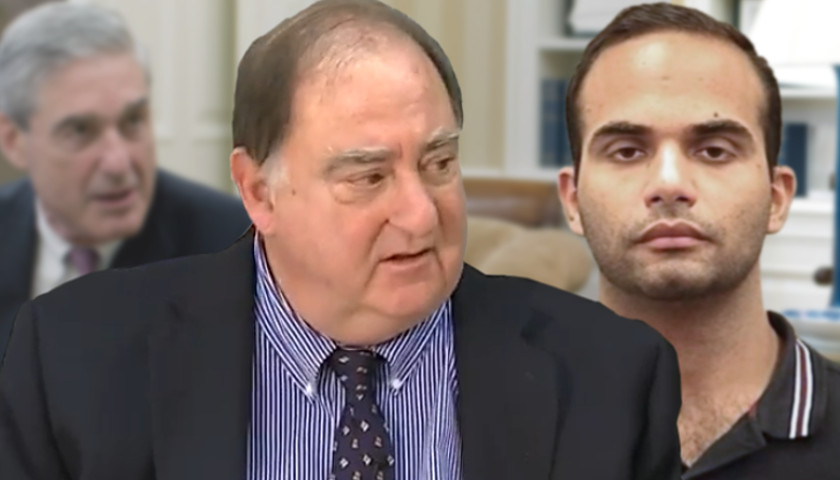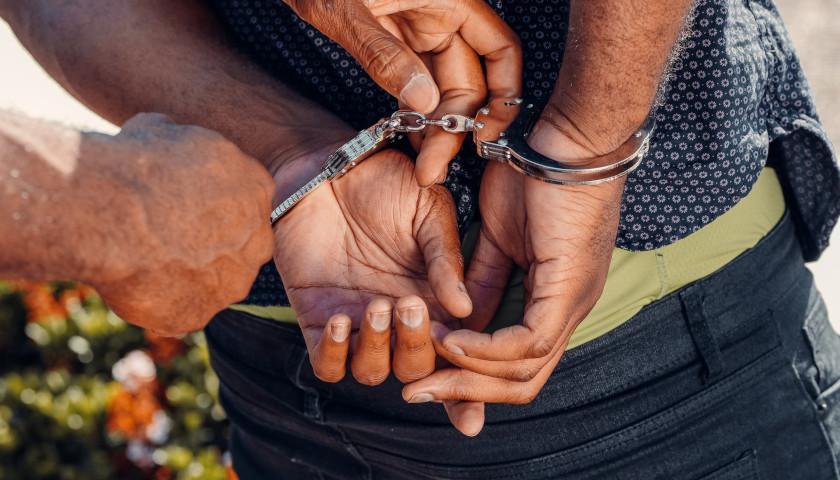by Chuck Ross
Republican lawmakers who interviewed George Papadopoulos on Thursday came away from the hearing questioning the FBI’s basis for opening its collusion investigation based on information about the former Trump campaign aide.
 “What we’re finding without talking about specifics of what’s going on is that the whole reason that this investigation was opened up was certainly not one built on a solid foundation,” North Carolina Rep. Mark Meadows told Politico after Papadopoulos wrapped up his testimony.
“What we’re finding without talking about specifics of what’s going on is that the whole reason that this investigation was opened up was certainly not one built on a solid foundation,” North Carolina Rep. Mark Meadows told Politico after Papadopoulos wrapped up his testimony.
“It’s hard to understand why the FBI opened the highest profile investigation in recent times into potential collusion by the Trump campaign with the Russian government that centers on a campaign policy adviser who been on the job a month at the time the Trump-Russia investigation was launched,” Texas Rep. John Ratcliffe told Fox News.
https://twitter.com/RepRatcliffe/status/1055556596267450371?ref_src=twsrc%5Etfw
Meadows and Ratcliffe, who are Republicans, joined Maryland Rep. Jamie Raskin, a Democrat, in the closed-door interview of Papadopoulos. The three lawmakers are part of a task force made up of House Judiciary and House Oversight Committee members investigating the FBI’s handling of its investigations during the 2016 campaign.
Thursday’s hearing was Papadopoulos’s first appearance on Capitol Hill to answer questions about his activities on the Trump campaign. The Chicago native is currently preparing to serve a 14 day jail sentence after pleading guilty in the special counsel’s investigation for lying to the FBI about his contacts with a Maltese professor during the campaign.
Papadopoulos, 31, is said to have been the catalyst for “Crossfire Hurricane,” the FBI’s investigation into the Trump campaign. The bureau opened the inquiry on July 31, 2016 after receiving a tip from the Australian government that Papadopoulos had mentioned in a conversation two months earlier that Russians may have derogatory information on Hillary Clinton.
Alexander Downer, who served as Australia’s top diplomat to the U.K., claimed that during a meeting in London on May 10, 2016, Papadopoulos told him that Russia had information on Clinton. Downer has said that Papadopoulos did not provide details of the information and that he did not claim that Donald Trump or the campaign was aware of the unspecified material.
The FBI’s collusion probe went in additional directions soon after it started. In October 2016, the FBI obtained the first of four Foreign Intelligence Surveillance Act (FISA) warrants against Carter Page, another Trump campaign aide.
The FBI relied heavily on the unverified Steele dossier to obtain the warrants. The dossier, written by former British spy Christopher Steele, alleged that Page was the Trump campaign’s main conduit to the Kremlin. The dossier, which does not mention Papadopoulos, also claims that the Russian government is blackmailing Trump.
Special Counsel Robert Mueller has since taken over the collusion probe. But the initial concern about Papadopoulos appears to have dissipated. Papadopoulos has not been accused of conspiring with Russians or with handling Democrats’ emails. Instead, he pleaded guilty to the relatively light charge of making false statements to the FBI.
During a Jan. 27, 2017 interview, Papadopoulos told FBI agents that Mifsud told him in an April 2016 meeting that he had learned that Russians had “dirt” on Hillary Clinton in the form of “thousands” of her emails. Papadopoulos claims not to remember telling anyone on the Trump campaign about Mifsud’s remarks. He also says he did not see, handle or disseminate Clinton emails.
He acknowledged lying about the timeline and extent of his contacts with Mifsud.
Papadopoulos went into Thursday’s interview hoping to tell lawmakers about interactions he had during the campaign that he now wonders were part of an entrapment effort by the U.S. government.
At least one FBI informant, Stefan Halper, made contact with Papadopoulos. In September 2016, Halper, a former University of Cambridge professor, flew Papadopoulos to London under the guise of writing an academic paper on energy issues.
During a conversation there, Papadopoulos says that Halper began asking him whether he knew about or was involved in Russian efforts to steal Democrats’ emails. Papadopoulos says he denied knowing about hacking or emails.
– – –
Chuck Ross is a reporter for the Daily Caller News Foundation. Follow Chuck on Twitter.





